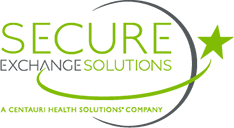The hassle associated with prior authorization is a topic I’ve frequently voiced concerns about. Why? Because, the impact on the healthcare industry is significant. It results in hundreds of hours of wasted time each year, loss of thousands of dollars for providers and payers while patient care suffers due to the inefficiency of the process. In today’s patient-centered care environment, we cannot continue to process prior authorization in the same way. And yet, technology exists to address this problem. More needs to be done to solve for this critical industry issue.
I and other industry experts agree that standards for health information exchange is the answer. Until now, standards have not been established to enable the secure sharing of critical health information through healthcare portals. We are joining forces to change that.
Industry leaders from Athenahealth and Humana will be joining me at the Workgroup for Electronic Data Interchange (WEDI) WEDI-Con, Tuesday, December 5 at 7:30 am, to discuss how EMR vendors and payers can leverage existing standards to address this critical healthcare issue. I’ll be seated on a panel alongside Stephanie Geihe, Athenahealth and Kim Peters, Humana, to talk about the issues associated with prior authorization without portals, at the Hyatt Regency, Reston, VA in Regency Room Ballroom A.
Given that this is a complex issue, we will be providing perspectives on how best to solve the challenge of information sharing. My belief is that using EMR technology / standards is the most effective way to address this issue. Direct plus CCD enables stakeholders to get the medical necessity data to those making the decision, which is critical. However, the CCD alone is not enough, it needs to be wrapped in information about the request for authorization. In addition, it is possible for the payers to automatically read the chart to make a determination.
The move toward patient-centered care makes efficiencies in information exchange a necessity. The technology exists to enable the secure, digital, bi-directional flow of information between stakeholders to facilitate decision-making that is in the best interest of the patient. Why aren’t more payers and providers leveraging these technologies?
We’ll be addressing this and related topics during the Workgroup for Electronic Data Interchange (WEDI) session.
As the nation’s leading nonprofit authority on the use of health IT to create efficiencies in healthcare information exchange and the trusted advisor to the U.S. Department of Health and Human Services (HHS), WEDI-Con provides a platform for industry leaders to address these pressing issues.
As a meeting participant, I along with other thought leaders in healthcare information technology, including payers, providers, government regulators and vendors, will be addressing a myriad of health IT topics, from data exchange, HITRUST assessments and block chain, to the new Medicare cards, electronic clinical quality (eCQM) and the future of health IT.
Too many inefficiencies continue to plague the effective exchange of health information. More needs to be done.
